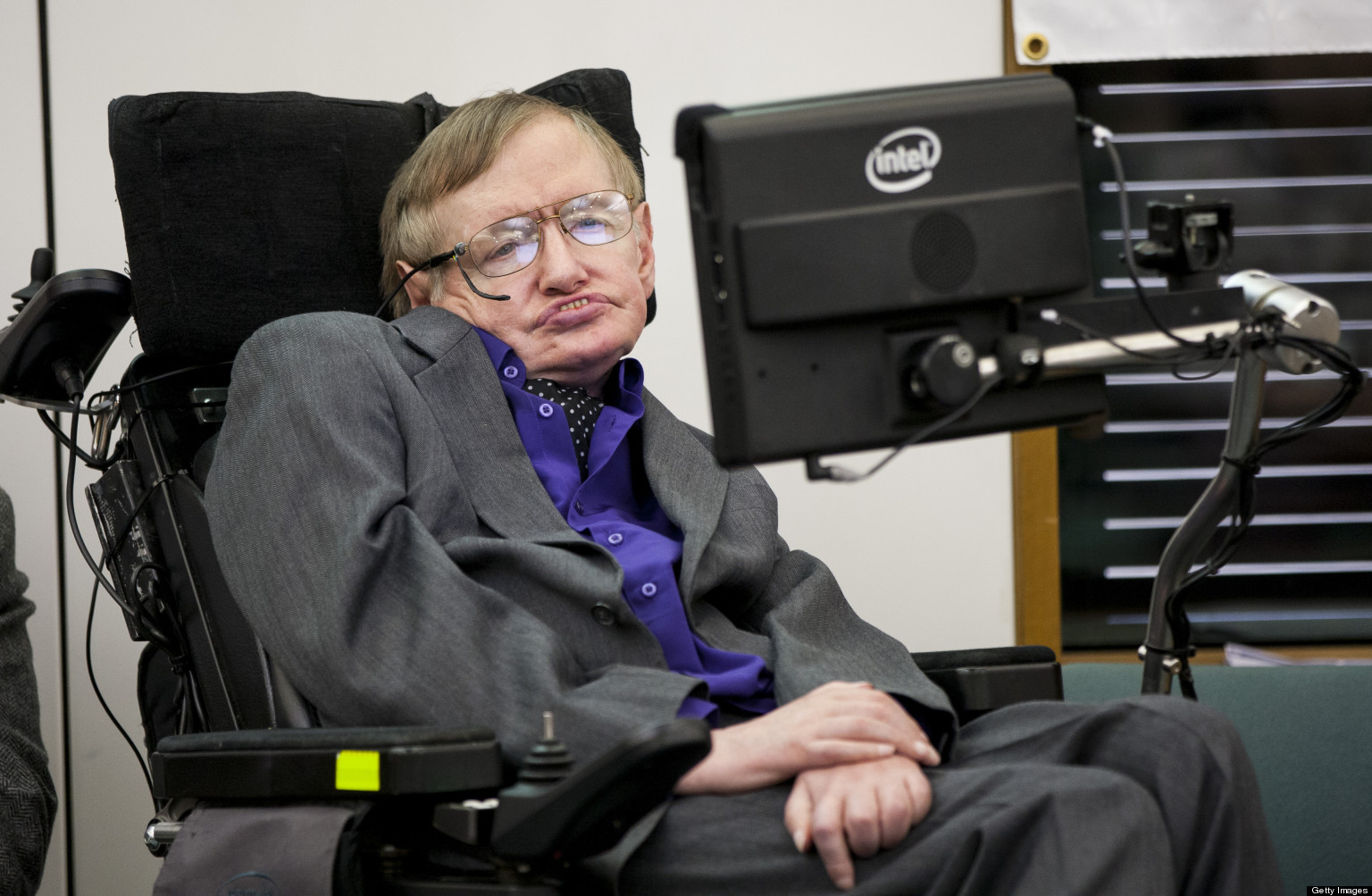Stephen Hawking died Wednesday, March 14, 2018 after complications due to amyotrophic lateral sclerosis, a progressive neurodegenerative disease. He was 76.
The world-renowned theoretical physicist and cosmologist was best known for his work on black holes. Hawking theorized that, contrary to the prevailing scientific belief that black holes were inescapable for all forms of matter and energy, they actually emitted a form of radiation ― now known as Hawking radiation. He also played a key role in the mathematical effort to unify Einstein’s general theory of relativity with the emergent field of quantum physics.
Tributes for famed theoretical physicist, cosmologist and best-selling author Stephen Hawking filled social media sites overnight.
Scientists, media personalities, celebrities and many of the millions around the world who were influenced by his work and inspired by his life shared their thoughts:
His passing has left an intellectual vacuum in his wake. But it's not empty. Think of it as a kind of vacuum energy permeating the fabric of spacetime that defies measure. Stephen Hawking, RIP 1942-2018. pic.twitter.com/nAanMySqkt
— Neil deGrasse Tyson (@neiltyson) March 14, 2018
Sad to hear about Stephen Hawking. What a remarkable life. His contributions to science will be used as long as there are scientists, and there are many more scientists because of him. He spoke about the value and fragility of human life and civilisation and greatly enhanced both
— Brian Cox (@ProfBrianCox) March 14, 2018
Remembering Stephen Hawking, a renowned physicist and ambassador of science. His theories unlocked a universe of possibilities that we & the world are exploring. May you keep flying like superman in microgravity, as you said to astronauts on @Space_Station in 2014 pic.twitter.com/FeR4fd2zZ5
— NASA (@NASA) March 14, 2018
"Look up at the stars and not down at your feet. Try to make sense of what you see, and wonder about what makes the universe exist. Be curious." — Stephen Hawking pic.twitter.com/Q3nmjWPVL0
— Simran Jeet Singh (@simran) March 14, 2018
Our world has lost a shining light. Stephen Hawking defied expectation. Blessed with a brilliant mind and uncommon grace, he opened so many minds to the wonders of our universe. Courageous and unbowed by adversity, he believed deeply in the power reason. May he rest in peace.
— Dan Rather (@DanRather) March 14, 2018
In loving memory of Stephen Hawking. It was an honor to have him on The #BigBangTheory. Thank you for inspiring us and the world. pic.twitter.com/9rWoYqIToy
— The Big Bang Theory (@bigbangtheory) March 14, 2018
Hawking used his position as one of the world’s most famous scientists as a platform to discuss a wide range of issues, from the existence of extraterrestrial life to the nature of philosophy. He skyrocketed to public prominence in 1988, when he published his first general-audience book, A Brief History of Time: From the Big Bang to Black Holes. The cosmology treatise has sold approximately 10 million copies worldwide, making it one of the best-selling science books of all time.
In 1963, when he was just 21 years old, Hawking was famously diagnosed with the debilitating motor neuron disease amyotrophic lateral sclerosis. Though 80 percent of those with ALS die within five years of diagnosis, and Hawking’s own doctors gave him roughly two years to live, he survived for decades, perhaps longer than any other patient with the disease in medical history. Hawking used a wheelchair to move around and a sophisticated computer system to speak for much of his time as a public figure.
The physicist’s inspiring ― and turbulent ― personal story was dramatized in the 2014 movie “The Theory of Everything,” which was based on a memoir by Hawking’s first wife, Jane Wilde. Actor Eddie Redmayne’s portrayal of Hawking in the film won him an Oscar for best actor.
Hawking was born on Jan. 8, 1942 ― the 300th anniversary of Galileo’s death ― in Oxford, England, to Frank, a physician specializing in tropical disease, and Isobel, a medical secretary. He and his three younger siblings grew up mostly in the town of St. Albans, just north of London, in what has been described as a highly intellectually-engaged home.
At the St. Albans School, Hawking was an indifferent student, preferring to spend his time playing board games and tinkering with computers. But he nonetheless gained admittance to his father’s alma mater, University College at Oxford University, in 1959, at the age of 17.
Upon arriving at Oxford, Hawking toyed with the idea of studying either math or medicine before eventually settling on physics. His attitude toward academic work remained lackadaisical in college. He rarely attended lectures and has said that he spent only 1,000 hours on studies during his three years at Oxford, or just an hour a day.
Still, Hawking’s natural brilliance started to shine through as an undergraduate ― and he apparently felt that his tutors resented him for doing so well with so little work. When he submitted his final thesis, it was given a grade on the border between first-class honors and second-class honors, so Hawking had to face an oral exam that would determine his grade.
Knowing his reputation, he reportedly told his examiners, “If you award me a First, I will go to Cambridge. If I receive a Second, I shall stay in Oxford, so I expect you will give me a First.” He got a First. And, as promised, Hawking enrolled in graduate school at Trinity College, Cambridge in 1962, studying under the physicist Dennis Sciama and the famed astronomer Fred Hoyle.
He became interested in the then-nascent study of black holes and singularities, the existence of which had been implied by Einstein’s general theory of relativity.
Read more at HuffPost







